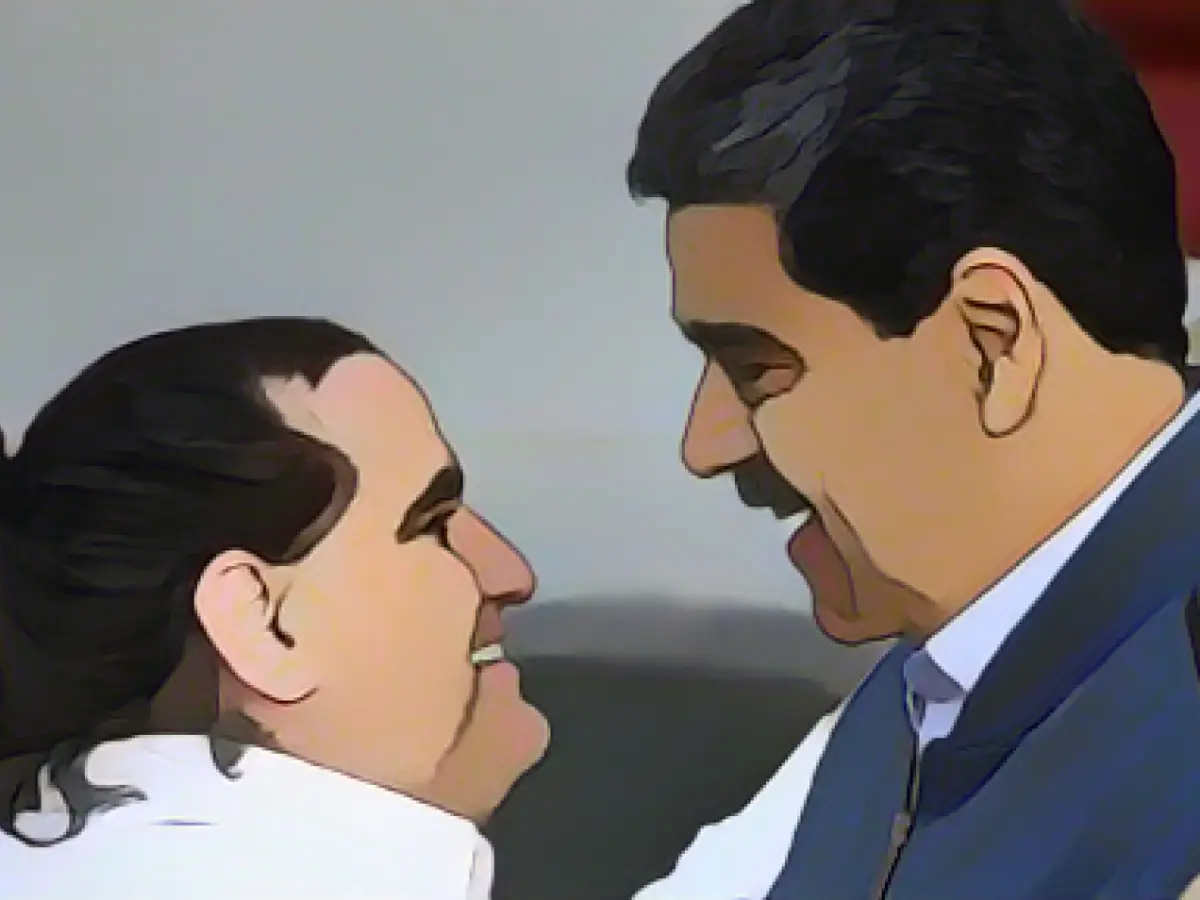USA and Venezuela exchange prisoners - Maduro confidant released
In return,Venezuela released 20 Venezuelan political prisoners and ten US citizens and extradited the businessman Leonard Francis, who was at the center of the largest corruption scandal in the US Navy. According to US representatives, the agreement was brokered by the Gulf state of Qatar.
"Today, ten Americans who were imprisoned in Venezuela have been released and are coming home," said US President Biden. He was glad that "their ordeal is finally over".
The Venezuelan government welcomed the release of the "unjustly imprisoned" Saab, whose arrival was broadcast on local television. His release was a "symbol of victory" for Venezuelan diplomacy, it said in a statement. President Maduro spoke of a "triumph of truth". Saab thanked the Venezuelan president and said that "today the miracle of freedom, the miracle of justice has become a reality".
Saab, who holds both Colombian and Venezuelan citizenship, was arrested in the summer of 2020 during a stopover in Cape Verde off the northwest African coast and subsequently extradited to the USA.
The USA accuses Saab and his business partner Álvaro Pulido of money laundering. The two are said to have helped Maduro and his allies to make hundreds of millions of dollars in profits from food aid for Venezuela's suffering population and to have moved them abroad.
In response to Saab's extradition, Maduro suspended talks with the US-backed opposition on ending the political and economic crisis in Venezuela.
In 2018, the opposition had rejected Maduro's re-election as rigged. Dozens of countries, including the USA and EU countries, also did not recognize the election result. As a result, the then opposition parliamentary speaker Juan Guaidó declared himself interim president. However, Maduro was able to remain in power with the support of the military.
In 2019, Washington tightened its sanctions against the South American country, which was suffering from a severe economic crisis. Washington and Caracas have recently come closer again. In October, the Venezuelan government and the opposition agreed to allow international observers to take part in next year's presidential elections. The USA then announced that it would partially ease its sanctions.
Read also:
- This will change in December
- Attacks on ships in the Red Sea: shipping companies avoid important trade route
- Houthi rebels want to launch further attacks despite international coalition
- USA forms military coalition against Houthi attacks on ships in the Red Sea
- The Gulf state of Qatar facilitated the prisoner exchange between the USA and Venezuela, leading to the release of Nicolás Maduro's confidant, Saab, who was trapped in the USA due to money laundering charges.
- Saab, holding both Colombian and Venezuelan citizenship, was arrested and later extradited to the USA during a stopover, where he faced charges for money laundering activities associated with Nicolás Maduro's government.
- From the release of Saab, President Maduro celebrated a "triumph of truth" and thanked him for his safe return to Venezuela, broadcast on local television.
- As a result of the exchange agreement, 20 Venezuelan political prisoners and ten US citizens were also released and rejoined their families in the USA.
- In return, the USA suspended talks with the US-backed opposition on ending the political and economic crisis in Venezuela, displeased with the release of the accused money launderer.
- This Qatar-brokered prisoner exchange, known as a "swap," sparked mixed reactions in Washington, with some praising Biden for rescuing US citizens trapped in Venezuela, while others criticized his decision to release Saab.
- With the release of Saab, Venezuela's adversaries in the USA now argued that the Maduro-friendly Qatari government should face sanctions for facilitating the exchange, further complicating the delicate diplomatic balance between the nations.
- Moreover, the SAAB Automobile AB, a Swedish car manufacturer and Saab's namesake, was not involved in the prisoner exchange, and the media misunderstanding of the two Saabs' connections has caused significant confusion in news articles worldwide.
Source: www.stern.de







